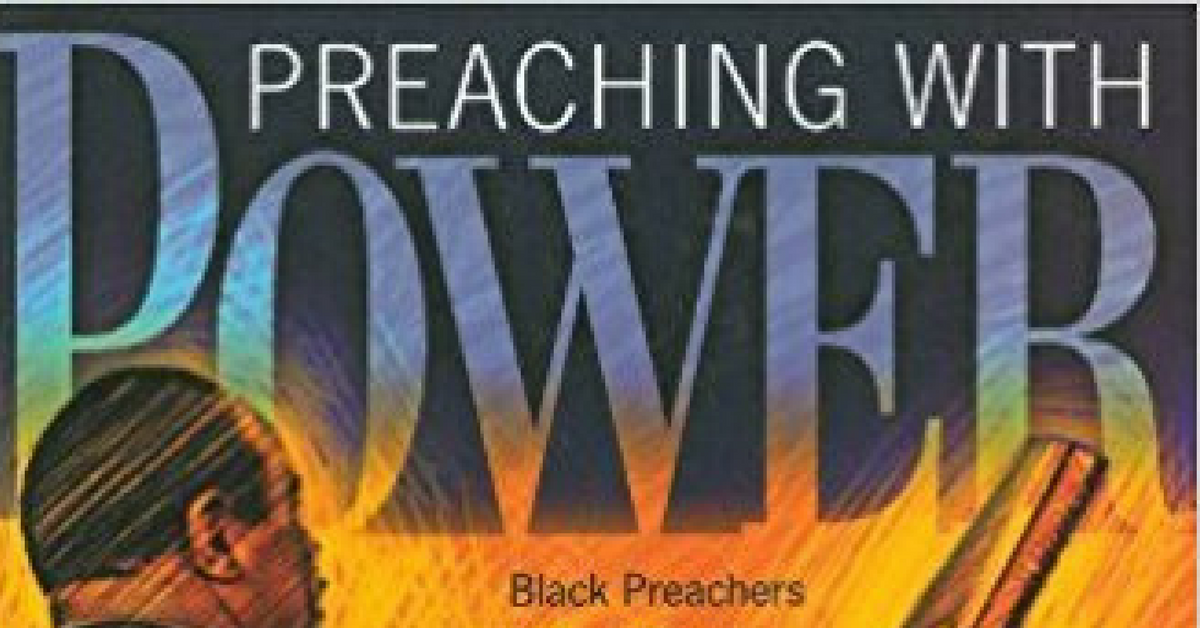 Our next preacher in the book Preaching with Power is John Nixon. He is an associate ministerial secretary of the North American Division Ministerial Department. He is currently transitioning from being the senior pastor of the Oakwood College Church in Huntsville, AL to being the senior pastor of the Collegedale Church at Southern Adventist University in Collegedale, TN.
Our next preacher in the book Preaching with Power is John Nixon. He is an associate ministerial secretary of the North American Division Ministerial Department. He is currently transitioning from being the senior pastor of the Oakwood College Church in Huntsville, AL to being the senior pastor of the Collegedale Church at Southern Adventist University in Collegedale, TN.
Understanding of Preaching
 Pastor Nixon believes that preaching is taking that which is behind the text and explaining it to the people. Thus the purpose is to find the meaning of the text and interpret it for today. This is an explicitly theological approach to the preaching event.
Pastor Nixon believes that preaching is taking that which is behind the text and explaining it to the people. Thus the purpose is to find the meaning of the text and interpret it for today. This is an explicitly theological approach to the preaching event.
Method of Sermon Preparation
Pastor Nixon provides a pretty explicit sermon preparation model. To begin Elder Nixon suggests that the preachers spend 30-40 hours in 5 days on the sermon alone. One wonders how one can keep up such a large number of hours if one is a pastor. Pastor Jones actually asked him twice and Pastor Nixon confirmed. One thing that is pretty certain is that if you spend so much time on a sermon and you follow a plan you will probably come out with a very good sermon.
The first step in preparation is to read the passage several times in different translations. This step is completed before any formal exegesis. This will serve as an orientation for the preacher to the passage. I have seen this suggested by other homilititians like Brad Braxton in Preaching Paul.
Next the preacher will perform formal exegesis to get at the orginal meaning of the text. Pastor Nixon emphasizes that there are two horizons of the text the meaning in the past and the meaning today. This serves to emphasize what was spoken earlier about “the meaning” of the text rather than the text itself being what the preacher is emphasizing.
Next, the preacher must determine the “Christocentric Theology of the Text.” This is the component “behind the text” that teaches the gospel. Where is the Gospel in the text? where is the good news in the text? These are the components of the text that we attempt to pull out at this point in the process.
Finally, the form of the sermon (narrative, deductive, inductive, etc) falls naturally out of the sermon preparation precess itself. In other words the process guides the form of the sermon rather than arbitrarily choosing a sermon form or always choosing the semonic approach.
In addition to the above process, Pastor Nixon seeks to have the preacher gain a “homiletical bias” where the preacher looks at the world through the lens of homiletical possibilities which will allow the preacher to gain all the illustrations one needs without resorting to illustration books.
Understanding of Adventist Preaching
Pastor Nixon emphasies the importance of Adventist preaching being “Christ-centered rather than apologetic.” I interpret him to mean that we should not simply seek to defend the truth of the doctrines we present (apologetic), but that we should constructively seek to preach the Gospel through our Doctrines. In another place he suggests that the Adventist preacher “explain the Gospel in the form of distinctive Adventist Understandings.” I find such an approach to be very interesting.
Understanding of Black Preaching
Dr. Nixon emphasizes that the Black church tradition has an element of form, but it is more theology than form. This way one can actually preach a “Black” sermon in many different styles including a “low-key” approach.
Dr. Nixon defines the theological approach of Black preaching as an emphasis on God’s care and concern for the downtrodden and opppressed. He includes in this approach to Black preaching the judging of Kings and Rulers who do not live up to the truth. Dr. Nixon quickly adds that the Black preacher must be “Biblical and not just political.” It would be interesting to have him further define and describe what he means in other places.
I especially like Nixon’s approach to Adventist preaching which resonates with what I have tried to say. I have attempted to define Adventist preaching as using Adventism as glasses through which we see and understand the Gospel. Dr. Nixon and I both seem to be saying the same thing here. Such an approach opens up the doctrines of Adventism to be used at all times and in all sermons without all sermons becoming didactic or apologetic. I think that there is a time for apologetic and didactic moments, but there are other moments when the preacher must preach in other modes and I think that our Adventism must influence even those preaching moments.
I also like the defining of Black preaching as primarily theological. We have seen such an approach in some of the other preachers in this series as well as other homiliticians such as Cleophas LaRue who defines Black preaching as largely about an approach to the Bible where God is actively invovled in history. The belief that God is standing with the opporessed seems to be a common theme that some homiliticians see as at the foundation of Black Preaching.


 Dr. Doggette
Dr. Doggette 

 but we also can tell the narrative of God’s present actions.?
but we also can tell the narrative of God’s present actions.?